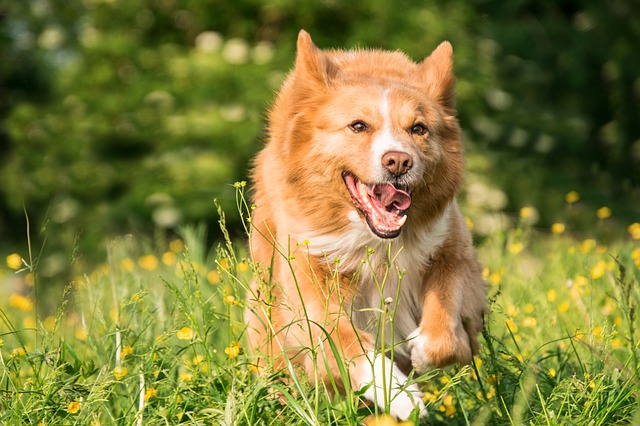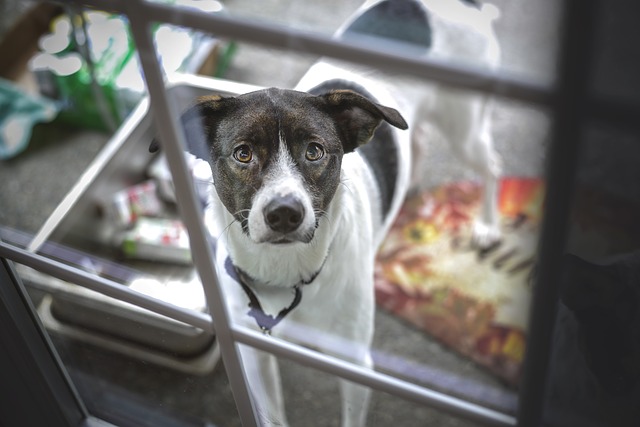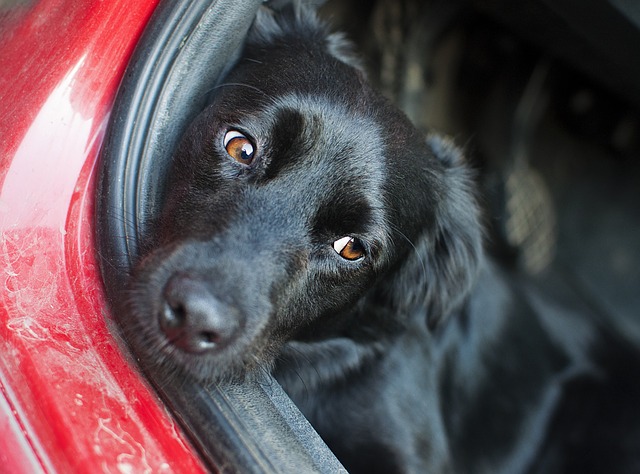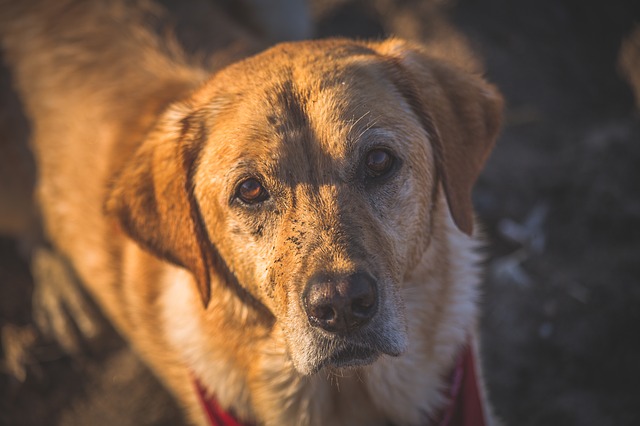
One in three dogs will become lost at some point in their lives. The ones lucky enough to reunite with their families often have a good Samaritan to thank. But not everyone knows what to do. Here’s how to recognize when a dog needs your assistance, and how to help them find their way home again.

Recognizing The Different Kinds Of Lost Dog
You may be wondering how to tell if a dog is really lost. After all, some people allow their pups to wander, especially in more rural areas. Here are the four types of dog you may encounter:
1. The Pro
This dog is either a master escape artist or his owner allows him to roam free. He will appear confident and secure in his surroundings. He may follow the same route each time, stopping to leave his “signature” along the way. While these dogs may still become lost or injured, they tend to be sharper than indoor dogs. They typically know to avoid traffic and head home by dinner time.
2. The Cheater
These goofy dogs love everyone and may eagerly hop into your car at the first offer of help. While they are easy to catch, they are vulnerable to dog-nappers and well-meaning Samaritans.
3. The “Feral” Pup
This dog is in survival mode. She believes no one can be trusted, and may growl or snap if cornered. It is important to know that this behavior does not necessarily mean she’s been abused. Many dogs revert to a semi-wild state and avoid human contact when lost. This dog may be a long-time stray, a victim of neglect, or a well-loved pet.
4. The Runner
The runner is not only the most challenging, he is also at the highest risk of injury. Chances are this dog became lost during a loud thunderstorm or when someone set off fireworks. They take off in a pure panic, running fast and far with no regard for danger. Often times they run so far they are not able to find their way home once the stressful event has passed.

Bringing A Lost Dog To Safety
The type of lost dog you are dealing with will determine how difficult it will be to catch. Observe the behavior and body language. Remember, most dogs will not allow you to capture them without a fight.
Here are a few tips for a successful rescue:
- If you do not have a leash, a length of rope or a long scarf may do in a pinch. Create a loop you can slip over the dog’s head and tighten.
- Never chase, grab or corner a skittish dog! This may result in them snapping at you, bolting into traffic, or becoming even more lost.
- If the dog moves away from you, track it from a distance, keeping it in sight at all times.
- Earn the dog’s trust with slow, deliberate movements.
- Speak gently and offer treats if possible – a fast food hamburger goes a long way in these situations!
- Be patient. Capturing a lost dog can take hours, sometimes even days.
- Don’t give up. You would want someone to do everything possible to rescue your pet. Do the same for theirs.
A Note About Animal Control
If the dog is injured, behaving aggressively, or you are unable to capture it on your own, call your local animal control department for help. However, if you can avoid this call, it may have a better outcome for the dog.
Animal control officers work for the city or county and the dogs they pick up go to government shelters. Many of these facilities are open-intake or “kill” shelters. They cannot turn animals away, but may have to euthanize otherwise healthy pets due to lack of space.
The holding period for strays varies, but may be as short as 48 hours. If the dog is not claimed during the stray hold period, it may be put up for adoption or put to sleep. Think of what you would want for your pet. What if the owner is in the hospital or out of the country, completely unaware their dog has gone missing?

Segregate The Lost Dog From Your Own Pets
Should you decide to bring the dog home with you while you search for its owner, be sure to keep it separate from your own pets. This is important because:
- It may behave aggressively. Just because the dog is calm and gentle with you does not mean it gets along with other pets. Also, a stressed dog is much more likely to act out.
- It may be carrying parasites or infectious diseases. There is no way to know if the lost dog is carrying a deadly virus like parvo. Even a respiratory infection or flu could potentially affect your pets. In addition, the dog may have picked up fleas, ticks, skin mites or intestinal parasites. Not only can these little buggers infect your pets, they can also be transmitted to you and your family!

Steps To Help You Find The Owner
Now that the dog is safely in your care, it is time to begin searching for an owner. This may seem like a daunting task, but it helps to take it one step at a time:
Look For Identification Tags
Is the dog wearing a collar? Tags with the owner’s contact information are best, but a Rabies tag or Microchip ID tag can also help you track them down. A Rabies tag should have the phone number of the vet who gave the vaccine as well as a unique number that can be traced. Microchip tags also have the phone number of the manufacturer as well as the ID number of the dog’s chip.
Speaking Of Microchips…
Just because the dog does not have a collar of tags does not mean he or she is not microchipped. Bring the dog to a local shelter or vet’s office and ask them to check with their universal scanner.
File Found Dog Reports
Let your local shelters, veterinary hospitals, and animal control know that you have found a lost dog. You may also want to alert your Home Owner’s Association, local groomers, etc.
Post Online
Say what you want about the internet, but it has worked wonders for lost pets! Not only are there several websites for reuniting dogs and cats with their owners, online advertising sites and social media have proven invaluable.
- Post on nextdoor.com and Craigslist
- Search for lost pet pages and local groups on Facebook
- Upload information to reunion sites such as FidoFinder.com, LostMyDoggie.com, PawBoost.com, and PetFBI.com.
Create “Found Pet” Fliers
Not everyone uses the internet or social media. The old-fashioned flier method may just do the trick. Be sure to include photos of the dog as well as where it was found. Hang these around the community and share them with local shelters, vets, and other pet businesses.

What To Do If An Owner Cannot Be Found
If you exhaust all your resources with no luck, it is time to decide what to do next. You may opt to keep the dog, turn it over to a local shelter or rescue group, or attempt to re-home it yourself.
If you decide to keep it, ask yourself if you are willing and able to properly care for another dog. Can you provide enough exercise and enrichment? Will the dog be a financial burden? If you are unsure, it may be best to contact a reputable shelter or rescue and discuss your options.

Other Things To Consider
Try to keep an open mind.
The lost dog you help may be in rough shape. It may be dirty, underweight, sick or injured. It may behave as if it has been abused. However, there is no way to know how long the dog has been out on its own or what it has experienced.
Just because the dog shows signs of neglect, does not mean it does not have a loving owner. Perhaps the dog ran away during a loud thunderstorm or was stolen and then dumped. Give the owner the benefit of the doubt until you have all the facts.
Be aware that the dog may be very far from home.
iHeartDogs has shared several stories of lost dogs found hundreds if not thousands of miles from home. Keep this in mind and consider widening your search.
Require proof of ownership if someone attempts to claim the dog.
Sadly, some people use lost dog postings to run scams or exploit the animals for breeding or dogfighting. If a person contacts you claiming to own the dog, ask for proof of ownership in the form of photographs of them with their pet, veterinary records, or adoption records. You can also hold back a distinctive trait such as a scar or other identifying mark to ensure the person truly knows the dog.
The post How To Help A Lost Dog Find Its Way Home Again appeared first on iHeartDogs.com.
from iHeartDogs.com https://ift.tt/2NtM03E https://ift.tt/2LyjIm4


No comments:
Post a Comment